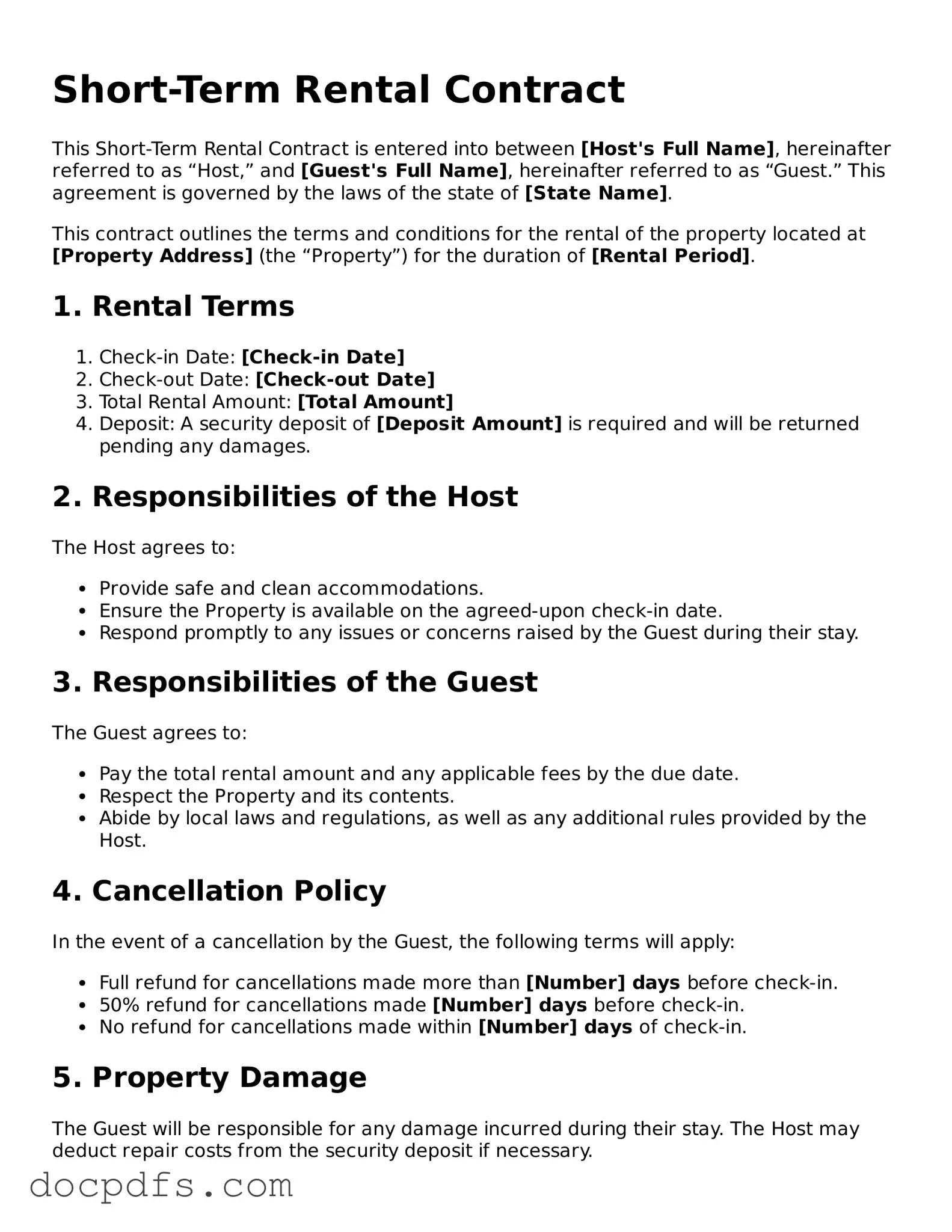What is a Short-Term Rental Contract?
A Short-Term Rental Contract is a legal agreement between a property owner (or manager) and a guest who intends to rent the property for a brief period, typically less than 30 days. This contract outlines the terms and conditions of the rental, including payment details, house rules, and responsibilities of both parties.
Why do I need a Short-Term Rental Contract?
Having a Short-Term Rental Contract is essential for several reasons:
-
Clarity:
It clearly defines expectations for both the host and the guest.
-
Protection:
It protects the property owner from potential damages and outlines the guest's responsibilities.
-
Legal Recourse:
In case of disputes, the contract serves as a legal document that can be referenced.
What should be included in a Short-Term Rental Contract?
A comprehensive Short-Term Rental Contract should include the following key elements:
-
Property Details:
Address, type of property, and any specific features.
-
Rental Dates:
Start and end dates of the rental period.
-
Payment Information:
Total cost, deposit requirements, and payment methods.
-
Cancellation Policy:
Terms regarding cancellations and any associated fees.
-
House Rules:
Guidelines for guests, including noise restrictions and pet policies.
-
Liability Waiver:
A section addressing liability for injuries or damages during the stay.
How do I fill out a Short-Term Rental Contract?
Filling out a Short-Term Rental Contract is straightforward. Start by entering the property details, including the address and type of rental. Next, specify the rental dates and the agreed-upon price. Be sure to include any additional fees, such as cleaning or security deposits. Finally, review the house rules and any other important information before signing. Both parties should keep a copy of the signed contract for their records.
Can I modify the Short-Term Rental Contract?
Yes, modifications to the Short-Term Rental Contract can be made, but both parties must agree to any changes. It’s best to document any alterations in writing and have both parties sign the updated agreement. This helps avoid misunderstandings and ensures that everyone is on the same page.
What happens if a guest damages the property?
If a guest damages the property, the Short-Term Rental Contract typically includes a clause regarding liability for damages. The property owner may retain part or all of the security deposit to cover repair costs. If the damages exceed the deposit amount, the owner may pursue additional compensation through legal means, depending on the terms outlined in the contract.
Is a Short-Term Rental Contract legally binding?
Yes, a Short-Term Rental Contract is legally binding as long as it is signed by both parties and contains all necessary elements. It acts as a formal agreement that can be enforced in court if needed. However, it’s important to ensure that the contract complies with local laws and regulations regarding short-term rentals.

